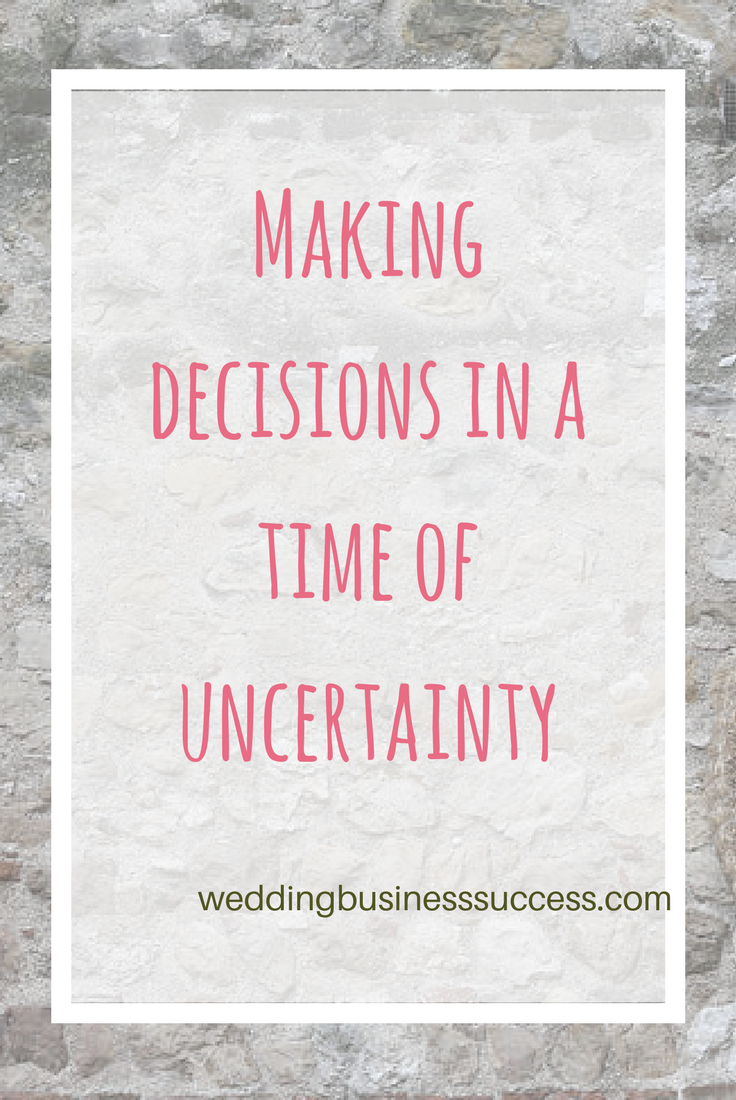Here in the UK it’s been a momentous couple of weeks with the referendum on EU membership resulting in an unexpected victory for the Leave campaign. So unexpected that it’s clear the government had no plans for what would happen next.
The prime minister is stepping down, the opposition are in a state of disarray and nobody seems to have a clue what’s going on.
Whatever your views, the only thing that’s certain is that we are in for a considerable period of uncertainty. And it’s likely the implications of Brexit will be felt way beyond the UK borders.
Decision making is hard enough for small business owners, but when the economic and political landscape is changing, it can seem near impossible.
It could be a big decision. For example, taking on your first member of staff, deciding to move to larger premises, giving up your job to concentrate on your wedding business full time. Or it may be smaller, but still important: Like investing in a new website, booking a stand at a national wedding fair.
Here are some thoughts and tips to help you move forward.
Certainty can be an illusion
It’s worth remembering that in actual fact, very little is absolutely certain.
Whether it’s national issues like tax rates or employment law – or more local like a new bridal store opening in the next street – we are faced with changing circumstances all the time.
That safe job you are thinking of giving up may not be as dependable as you think. Many people faced with a shock redundancy have found this out.
If you expect change, then you will be better placed to manage it.
Delaying decisions can be worse than not making them
You and your business have to continually adapt or you will be left behind.
And opportunities need to be grasped or they may never come around again.
So if that perfect place for a studio suddenly becomes available, you need to make the decision now.
Give yourself a time limit for reaching a conclusion so that you are not fretting over it for weeks and leaving your business in limbo.

Understand the risks – and the rewards
Accept that you will make your decision based on the best available information at the time.
Gather all the information you can.
Identify the areas of uncertainty. Is there anything you can do about them? Is there a date on which you might have more or better information? If so, what is the impact of delaying your decision until then?
Go through various scenarios and work out the impact – this will also help you have a better plan for implementing your decision and ensure you are prepared for different eventualities.
Make sure you don’t just concentrate on what could go wrong – focus on the positives for your business and life too.
Make your decision
At some point you are going to have to make your decision.
Once you have done this, don’t waste time and energy worrying about it. Start implementing.
On the other hand, sometimes you do need to trust your gut instinct. If you wake up the next day feeling really nervous or uneasy about the choice you have made, then go back over your decision making process and ask yourself why you feel that way.
Once you have committed then it’s up to you to do everything you can to make it work for you. Be adaptable, but focus on your goal and you will get there.

